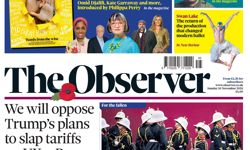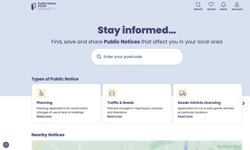The Newspaper Society wants to ensure appropriate curbs are placed on those council publications which take private sector advertising in direct competition with independent regional and local newspapers.
“In light of the urgency of the problem, widely acknowledged by senior ministers when the Digital Britain report was published last June, and the subsequent catalogue of quango delays and buck-passing, it is vital that the Government intervenes immediately to prohibit local authorities from setting themselves as newspaper publishers and competing with local newspapers for advertising revenues,” said David Newell (pictured), director of the Newspaper Society. “Central government must not turn a blind eye to this practice any longer. It undermines local democracy and must be stopped.”
The Audit Commission explained last summer that it was not the right body to examine this issue and that it was only able to look at part of the picture regarding council publications. But despite the limited scope of the Audit Commission’s study and the lack of meaningful financial information available on council publications, the Commission has confirmed the industry’s fundamental point of concern: that over 90 per cent of English councils publish a periodical and 47 per cent of them – around 150 council publications in England alone - contain private sector advertising and are therefore in direct and damaging competition with independent local papers in their areas.
Background information
The Digital Britain report (June 2009) noted “the adverse impact on local newspapers of the increasing role of local authorities in taking paid advertising to support local authority information sheets.” The Audit Commission was invited to undertake a specific inquiry (to be completed by the end of the summer 2009) “into the relationship between advertising in local authority and commercial newspapers, the prevalence of this practice, its impact and to make recommendations on best practice and if restraints should be placed on local authority in this field.”
In a response to the NS (July 2009), Audit Commission chief executive Steve Bundred explained that “the Commission’s role and expertise do not lend themselves to examining the health of local newspapers or isolating the impacts of specific local authority practices on commercial bodies. This element of the Digital Britain invitation appears better suited to regulators with a specific competition remit.” Instead they planned to carry out wider research into the value achieved by council spending on communicating with the public in order to spread good practice.










